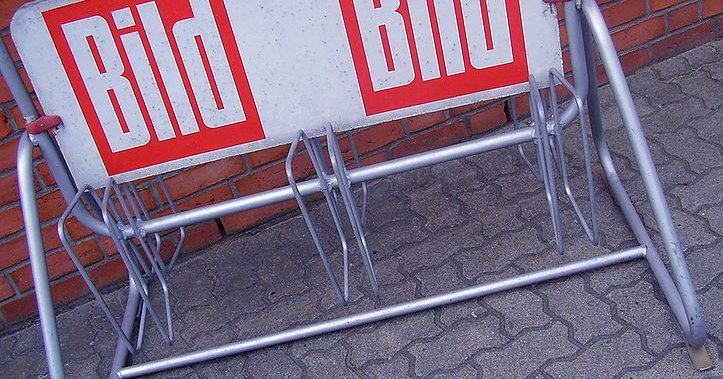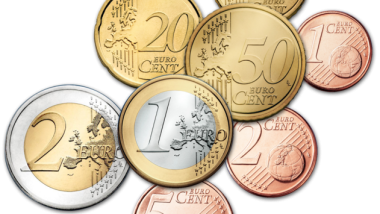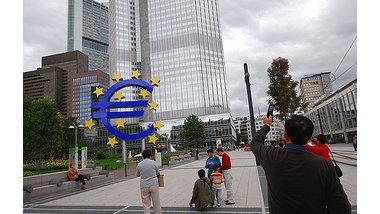Bild.de: The pioneer of the nationalistic press
In the Bild, all these criticisms seem to be confirmed: sensational headlines, nationalistic positions and a campaign misleading the readers in almost every article. This attitude can instantly be seen from the headline of the section dedicated to Greece: “The debt-crisis of bankrupting Greece”. Here there were articles such as “Billions of credit for the neighbours...and the bill is paid by German taxpayers!” that seem to suggest that Germany has to transfer money out of its national budget directly to Greece. This implicit message is further vitalised by an information box below the article entitled: “What you could do with 110 billion Euros”. One of the proposals: “A one-time contribution for the amount of 2000 Euros for all the 14,7 millions people receiving child allowance in Germany”.
Another article asks “Why do we pay Greeks for their luxury pensions?” and then provides percentages, without mentioning absolute numbers. The latter would reveal that Greeks receive a smaller amount of pension than in Germany, but just because they also earned less during their working lives. In this regard it is worth mentioning that Germany pays twice more than Greece for pensions, measured in terms of gross domestic product.
“But for the Greeks the money is all there at once. That cannot be!” (Interviewed by Bild.de)
The survey is called “Billions for Greece. And what is in it for us?” and illustrated by a picture of a helpless mother with a child.
This is even surpassed by “the big Bild-survey”, where eleven people are interviewed and all rant against the assistance to Greece. The survey is called “Billions for Greece. And what is in it for us?” and illustrated by a picture of a helpless mother with a child. Below the result of a readers’ survey: out of the 429,647 people who were surveyed, 86% are against the support. What a surprise!
Other tabloids are not much better!
Other tabloids also vigorously raise their voice against Greece, even if not in such an extreme way. The Express reports: “Greece just junk!”. Even if in other articles the Greeks are regularly denigrated as “bankrupting-Greeks”, the Express seems to remain fair.
The B.Z. tells the tale of the luxury pensions and acts like a schoolmaster in its analysis: “Dear Greeks, here is your homework!” The newspaper criticises a fiscal fraud for an amount estimated to 30 billion Euros. The fact that also Germans cheat a similar amount of money every year from the treasury is not mentioned by the tabloid.
“Sinecures, bribes and luxury pensions." (B.Z.) The magazines do the same
The fact that tabloids are not neutral comes as no surprise, however, in the case of Greece, magazines also forget their discretion and blame the Greeks. Spiegel-Online accuses the Greek population of changing the realities of the crisis and as corroboration for this thesis mentions Georgios Trangas. He is a polemical moderator by profession who rants against foreign interference. According to Dexiextrem, a participant of the Greek forum, he is the “Joke of the nation ”. The same author criticises, that Der Spiegel dares to depict him as reliable.
“Greeks are selfish." (Focus)
The top brazenness prize is won by Focus. In the section Greece Travel Guide the magazine notes: “Greeks are selfish” and would hold together only if they had a common enemy. The fact that the Greeks are a ”deadly enemy” among each other, could already be noticed from the civil war from 1944 to 1949, which caused more victims than the Second World War.
Bad influence on the readers’ opinion
The crucial aspect of this vile way of reporting is the fact that the views of journalists are transferred to the readers in a more extreme form. A look at the comments and the pages of the forum related to the article shows the radical and irrational argumentations of the readers. Here are some examples:
“GERMAN MONEY TO THE GERMANS!!!” – Written by ‘nodemocracy’ on the bild.de website
“At the end we, the Germans, will pay almost everything, at least 440 billion.” – Written by ‘Rusticus’ on the tagesspiegel.de website.
“My rationality suggests to me that we must help the Greeks for the interest of the Eurozone. My gut tells me: hunt the Greeks to the devil!” – Written by ‘Leuchturm’ on the spiegel.de website






1. On 26 August 2010 at 17:11, by wise Replying to: The Greek Crisis from the Perspective of the German press
Replying to: The Greek Crisis from the Perspective of the German press
Well, according to stats The Greek labor force totals 4.9 million, and on average work the second most hours per year amongst OECD countries, after South Korea.[24] The Groningen Growth & Development Centre has published a poll revealing that between 1995 and 2005, Greece was the country whose workers worked the most hours/year among European nations; Greeks worked an average of 1,900 hours per year. So, all this propaganda about Greeks being lazy is complete nonsense.
Follow the comments: |
|
